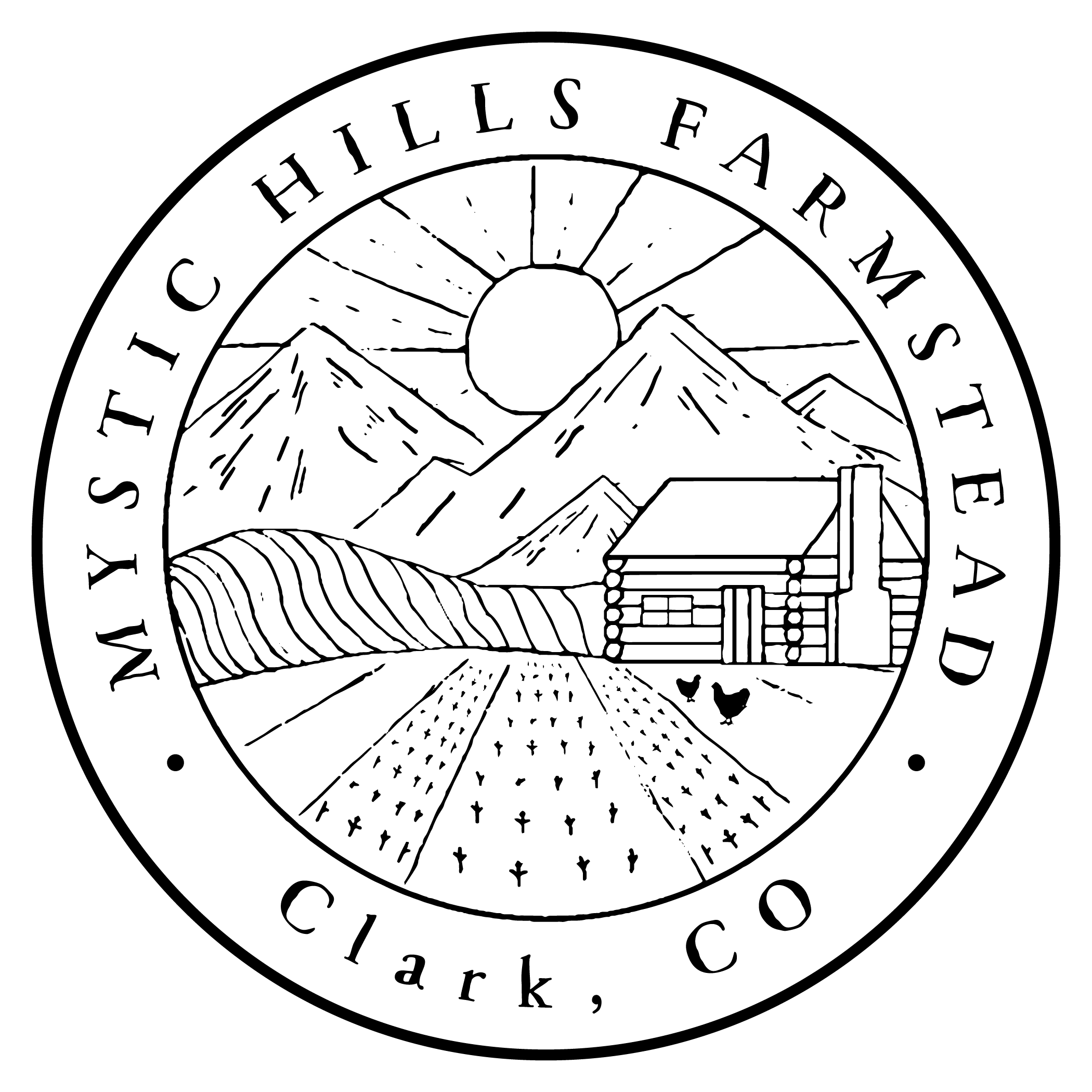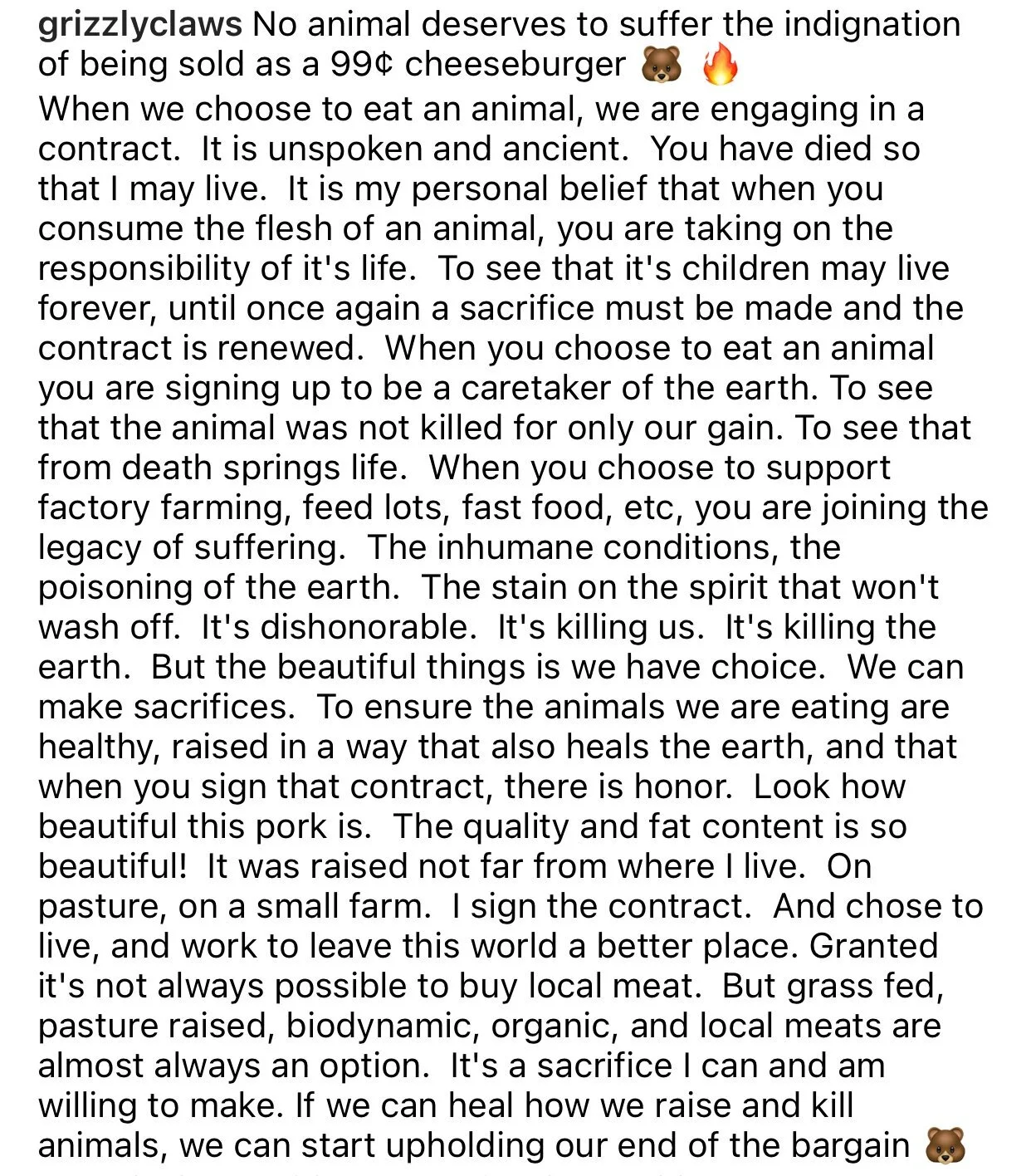Food for Thought (on Being a Meat Eater)
I’ve attempted (over the last several years) to eloquently and succinctly describe my beliefs and feelings about being a meat eater. I didn’t grow up eating local meat. To be honest, I don’t ever recall a moment when I even thought about the meat on my plate, other than I thought it tasted good. It never once crossed my mind as a kid or teenager that I was eating an animal that was at one point alive. I mean we know this right, that meat comes from an animal, but I don’t think we really think much about it. And I think this is something a lot of meat eaters have in common. We aren’t necessarily taught as kids or even as adults as we get older where the food on our plate comes from. We simply stop by the grocery store, find some veggies and meat that looks good, pay for it and leave without much thought. Or we stop by a drive through and purchase a burger and fries, eating while we drive, simply filling up our bellies, and appreciating that we are no longer hungry, but not necessarily taking a moment to reflect on the food we just consumed and what went into it. Thoughtful purchasing and consumption of food is something we often take for granted in this modern day and age.
I first really became aware of where my food came from when I started studying wildlife biology in college and we discussed the purpose of hunting as a wildlife management tool in the United States. As I learned about this, I became more interested in taking responsibility for my meat, not only from a conservation based mindset, but also because I wanted to know where my food was coming from. Then, when I started dating Jack in college, his avid hunting lifestyle became a large part of my life, too. I’ll never forget the deer steak he made me on one of our first dates- it was the cleanest meat I had ever tasted. He grew up hunting and learned from a young age how to take care of meat and it truly was (and still is) reflected in the quality of what he served me. I remember thinking to myself, “this is really cool and quite profound- I want to be part of this circle of life, too”. So he took me on my first hunt and I barely...barely made it. The first time I had even the tiniest smidgen of a chance to shoot an animal, I thought I was going to be sick. I was anxious and had a real moral battle going on inside of me for days after I had that animal in my sights. I didn’t think I could do it- be a hunter. At the same time though, I knew I liked eating meat- and for me, it wasn’t okay to eat meat, but not take some sort of responsibility for it. I didn’t end up taking an animal for a couple of years (hunting is really, really hard!), but I was changed forever, from just the one experience- the true experience of what it means to be a meat eater.
Long story short, this topic is really, really important to me and last week a fellow rancher and friend sent me this post from social media that really hit the nail on the head and I wanted to share it with you.
@grizzlyclaws post on Instagram
The idea that when we eat meat, we have signed an unspoken, ancient contract with that animal really resonates with me. As meat eaters, we are responsible for what is and is not okay with how an animal is raised and ultimately taken for our own gain. If we choose to eat meat, then we as consumers have a responsibility not only to ourselves, but to the animals, the earth, and the entire cycle of life to honor and respect that life. Of course, as humans we are inherently imperfect and we will make mistakes as consumers or be in a rush and have no choice but to eat a fast food meal, but I truly believe that if we can make even one small positive change in how we shop for food and what we choose to purchase, those small changes will inevitably lead to a better food system. When we support local food and sustainable farming operations, we are not only supporting small businesses and the families that run and own them, but we also begin to recreate a system of give and take, a system that generates thoughtful purchases and actions. When we are thoughtful and intentional consumers, we are better educated, can make better decisions and teach our kids about why we make these decisions, too. The contract, whether spoken or unspoken matters. I can speak from experience that the circle of life on a farm is a very real thing and when you have witnessed a life from beginning to end, the meat and how it is butchered, stored, and prepared truly matters. Food for thought on this farm journal Friday.
Have thoughts? Please share.
Until next time,
Farmer Kinzie

